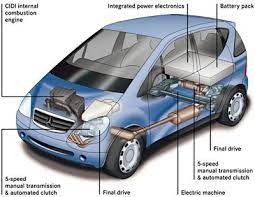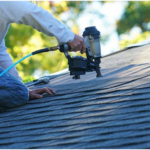Hybrid electric vehicles are propelled by an internal combustion engine and one or more electric motors that draw power from batteries. The battery of a hybrid electric vehicle cannot be charged by plugging it in.
The battery is instead charged via regenerative braking and the internal combustion engine. Additional power from the electric motor may allow for a more compact engine.
Why Do Some EV Manufacturers Discourage The Use of Automatic Car Washes?
As demonstrated, EVs can withstand automatic car washes. It is, therefore, somewhat surprising that some automobile manufacturers advise against automatic car washing.
Tesla discourages automatic car washes because they are detrimental to the paint job. Hyundai asserts that automatic car washes interfere with safety-related external cameras and sensors.
Automatic car washes are appealing because they offer a quick and inexpensive way to clean your vehicle.
However, frequent use of automatic car washes can accelerate paint deterioration.
Some automatic car washes use bristles that retain dirt and grime from previously cleaned vehicles. The contained debris scratches and causes swirl marks on other cars, causing the paint to degrade gradually. It’s highly likely that the bristles at your preferred car wash contain dirt, as attendants at car rarely wash clean the hairs between vehicles.
Tesla recommends that its customers choose touchless car washes. These automatic car washes have no bristles that touch the vehicle. The company states that improper cleaning is not covered under its warranty.
The problem with Hyundai’s automatic car washes poses a potentially catastrophic safety risk. The manufacturer asserts that filthy soft-touch bristles can obscure car sensors.
Cameras and sensors are essential for safety. By hiding them, you risk disabling vital safety features, such as collision warnings. Due to this risk, some owners of soft-touch car washes advise their customers against using the automated car wash.
While an automatic car wash will not destroy your electric vehicle, it may affect the paint and safety. Before subjecting your EV to an automatic wash, it is essential to review the user manual thoroughly.
What Happens if an Electric Car Gets Wet?
Your EV will get wet regardless of whether you opt for an automatic car wash or not. You will likely encounter precipitation and will occasionally need to wash your vehicle. Your EV is thankfully designed to withstand flood-level water.
As with other vehicles, water that strikes the exterior of an electric car will evaporate or form beads; as EV manufacturers seal the batteries and sensitive electrical components, water cannot reach them. However, moisture can damage its electrical systems if a vehicle is submerged in water for an extended period.
EV manufacturers conduct extensive tests to ensure that their vehicles can withstand regular exposure to moisture. Like ICE vehicles, rainwater will roll off or evaporate from your EV. ICE vehicles can only traverse water as deep as their engine intakes; if the engine takes in water, it can cause catastrophic damage.
EVs lack intake and no water entry points. Waterproof sealants safeguard the batteries against moisture interference. However, given sufficient time, water will permeate. Your EV will probably sustain damage if submerged in water for an extended time.
Conclusion
An electric vehicle can pass through a car wash without damaging its electrical components. Electric vehicle components that are susceptible to water intrusion are meticulously sealed. Some manufacturers warn against car washes, citing possible paint and sensor damage. Learn HEV courses in Delhi, and be a sound HEV driver.












